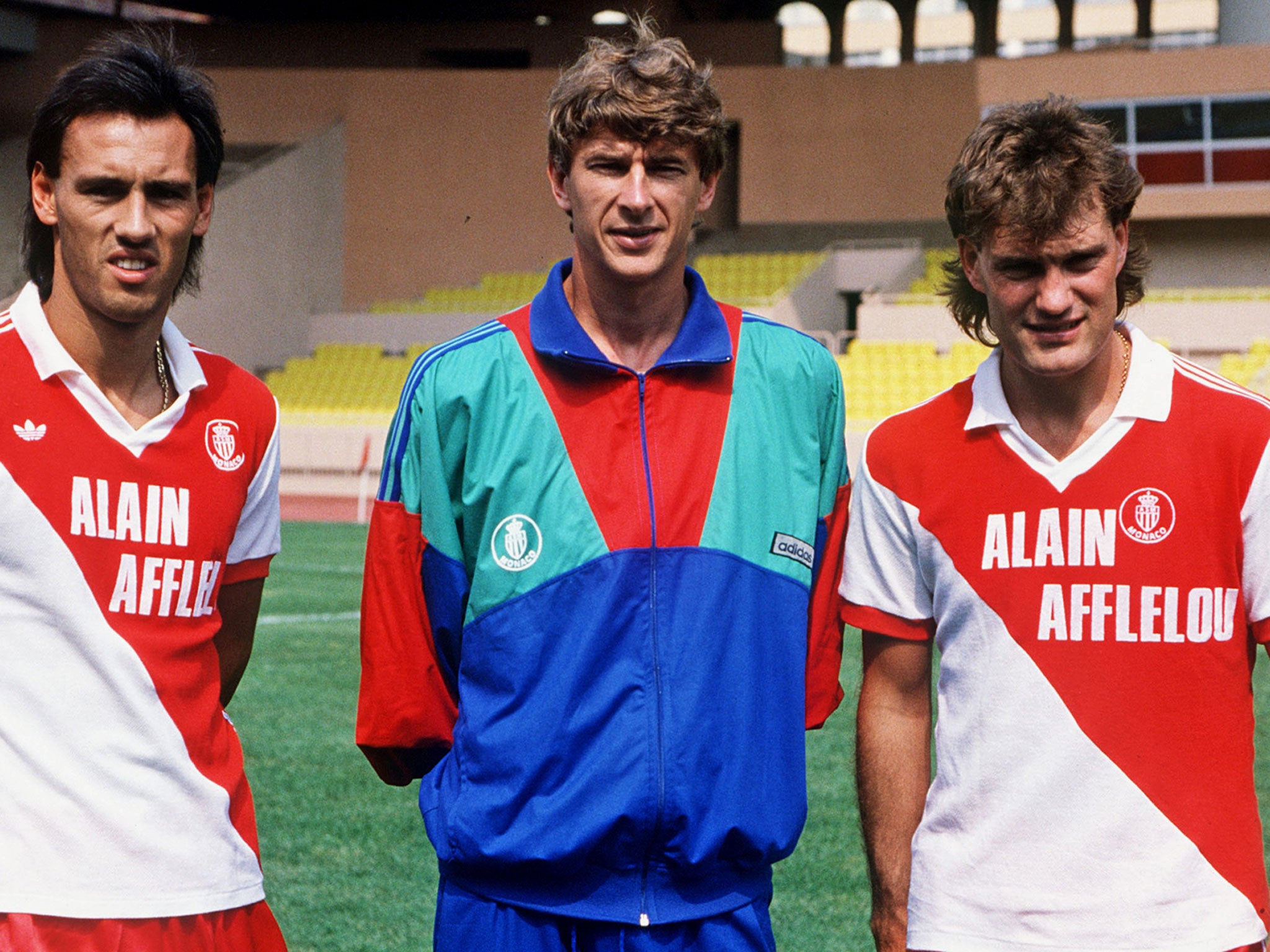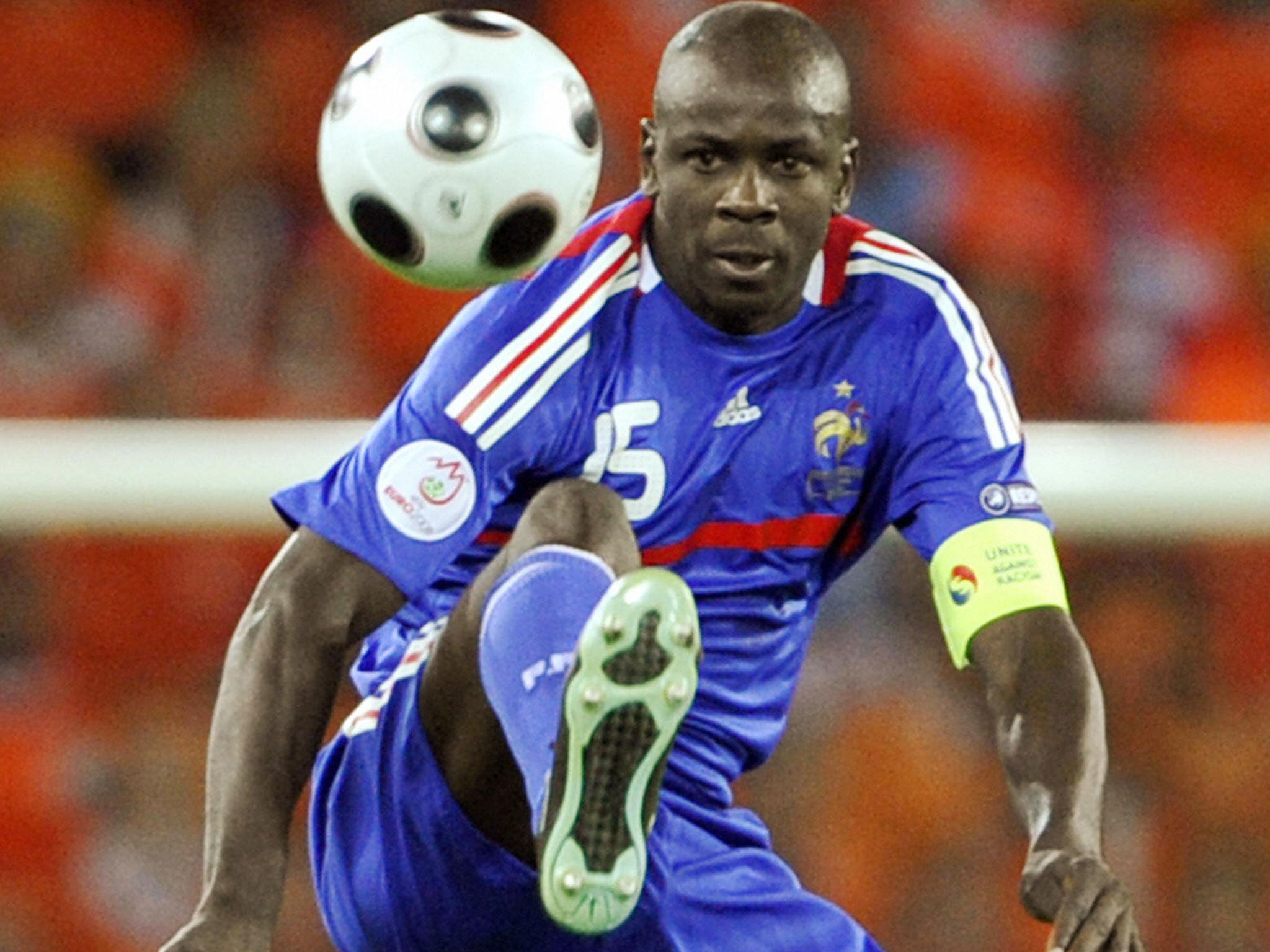Arsenal vs Monaco: Monaco - the making of Gunners' manager Arsene Wenger
The rigorous preparation, special diets and man-management were all there, Jack Pitt-Brooke learns from his former players

Your support helps us to tell the story
From reproductive rights to climate change to Big Tech, The Independent is on the ground when the story is developing. Whether it's investigating the financials of Elon Musk's pro-Trump PAC or producing our latest documentary, 'The A Word', which shines a light on the American women fighting for reproductive rights, we know how important it is to parse out the facts from the messaging.
At such a critical moment in US history, we need reporters on the ground. Your donation allows us to keep sending journalists to speak to both sides of the story.
The Independent is trusted by Americans across the entire political spectrum. And unlike many other quality news outlets, we choose not to lock Americans out of our reporting and analysis with paywalls. We believe quality journalism should be available to everyone, paid for by those who can afford it.
Your support makes all the difference.Arsène Wenger reiterated yesterday that tonight’s game would not trigger any deep emotions in him. He left Monaco more than 20 years ago and his association and success with Arsenal is far stronger than anything he has achieved anywhere else.
It was September 1994 when Wenger departed Monaco, and two years later he joined Arsenal. Since then he has developed and then dismantled four or five teams, and won eight major trophies. Football always moves on.
But what shines through the foggy memories of those who knew Wenger back then, even more than his football genius, his innovation, his drive to transform Monaco, is something else. It is Wenger’s personal touch, his emotional intelligence, the ability to communicate and engage that is remembered best by those who played for him.
Mark Hateley is a good example. He was one of Wenger’s first signings in 1987 when the 37-year-old coach joined Monaco from Nancy, despite being relegated in his final season there. Wenger quickly transformed the club, with his rigidly-measured training sessions, his regimented diet – mainly rice and pasta, fish and chicken – and detailed preparation on opponents. Wenger would deliver 45-minute presentations about the opposition on match-days, before the players slept, and would then hold another 40-minute meeting on Monaco’s own plans before kick-off.
Hateley was excellent in that first season, as was Glenn Hoddle, who arrived at Monaco from Tottenham just before Gérard Houllier could sign him for Paris Saint-Germain. Inspired by Wenger’s ambition and rigour, Monaco won Ligue 1 that season, for the only time in his tenure.
The following year Hateley suffered a double dislocation of his right ankle. He barely played for Monaco again, before joining Rangers in 1990. But it is with real warmth that the former England striker recalls to The Independent how Wenger looked after him during his lay-off.
“He was always there to talk to, always asking questions,” Hateley says. “But Arsène was brilliant with me, always talking to me, asking me what I needed. He got me a personal trainer to work with me every day, to keep my mind active, and work and work and work. So I always felt I was part of it, even when I wasn’t playing.”
Despite winning the Coupe de France in 1991, the second half of Wenger’s time in the principality was spent in a futile battle with a Marseille team now known to have prospered through corruption. Wenger did, though, bring through a new generation of youngsters who went on to dominate the game in the 1990s: Lilian Thuram, Emmanuel Petit, George Weah, Youri Djorkaeff and Thierry Henry.
Thuram was just 17 years old when he was brought into the Monaco first-team squad but he remembers clearly how much care Wenger took with him. “He was very attentive, always ready to listen,” Thuram says. “He is not someone who talks a lot, but he has a great observational quality and listening quality.”
Soon after breaking into the side, the defender missed a whole year with injury and it was only the trust of Wenger that helped him to recover. “When I was coming back,” he remembers, “the reserves coach was very tough with me. One day, Wenger told me ‘I am your manager’. He meant he had faith in me, and that was very important. His words were always right for me.”
None of which is to say, though, that Wenger was soft with his players. “He is from Strasbourg,” points out Hateley, “so he has that German streak through him. He is meticulous and a perfectionist, very, very animated and he did not mind showing his frustration at the way we were playing, making people stand up and listen. He could make the veins bulge out of his head.”
Thuram recalls Wenger’s anger when the instructions to play brisk, progressive football – the type that has characterised Wenger’s career – were disobeyed. “His philosophy was to play with the ball on the floor, quick passes to find the space,” he says. “We started from the keeper, and Wenger hated when I got the ball and passed it back to the keeper instead of going forward.”

Managing and motivating players is about finding the right balance between carrot and stick, and Jürgen Klinsmann, who spent two years at Monaco, recalls how Wenger held the talented young Djorkaeff back, to many players’ surprise, through the 1993-94 season.
“With Arsène it was always the long-term picture on players,” says Klinsmann, who learned a lot from Wenger. “Wenger used to leave out Djorkaeff and say ‘he has to learn to live the right life off the field’. It paid off. The kid learned his lesson and a couple of years later won the World Cup with France. I understood his vision was always long-term.”
Join our commenting forum
Join thought-provoking conversations, follow other Independent readers and see their replies
Comments